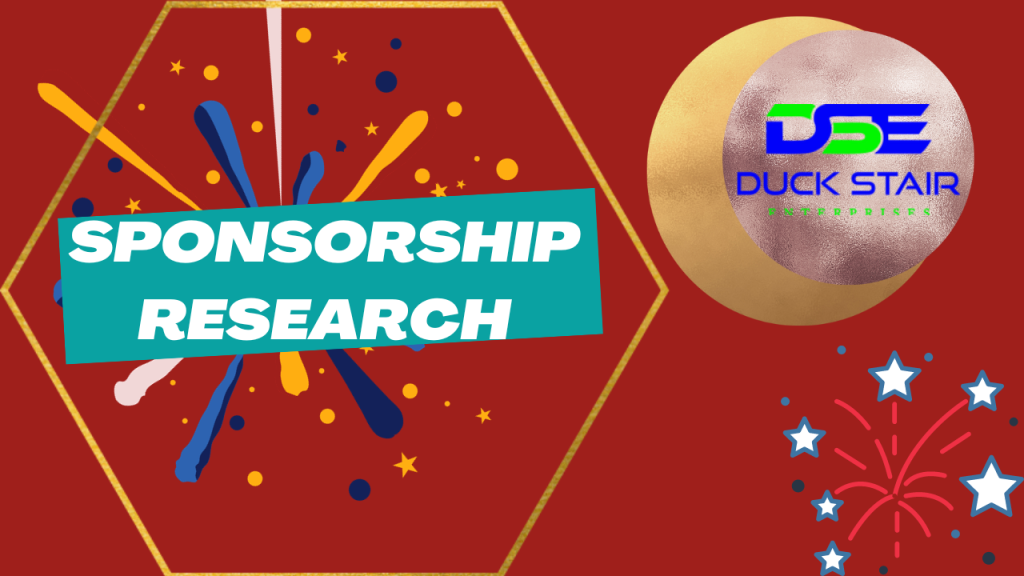
Sponsorship Research
Sponsorship research is a crucial aspect of securing sponsorship opportunities and maximising their value. It involves gathering information about potential sponsors, their goals, target audiences, and previous sponsorship endeavours. This research helps identify the most suitable partners and develop compelling sponsorship proposals that resonate with their interests.
Key Objectives of Sponsorship Research:
Identify Potential Sponsors: Research helps uncover companies, organisations, or individuals that align with the event, cause, or organisation seeking sponsorship.
Understand Sponsor Goals: Research delves into the sponsors’ objectives, target audiences, and desired outcomes from sponsorship engagements.
Evaluate Sponsor Past Performance: Research examines past sponsorship activities, success metrics, and return on investment (ROI) to assess their track record.
Develop Compelling Propositions: Leveraging research insights, tailored sponsorship proposals are crafted that align with the sponsors’ interests and objectives.
Types of Sponsorship Research:
Secondary Research: Utilising available data from industry reports, market studies, company websites, and news articles to gain insights.
Primary Research: Conducting surveys, interviews, or focus groups with potential sponsors to gather firsthand information and preferences.
Competitive Analysis: Comparing the sponsorship strategies of similar events or organisations to identify best practices and potential gaps.
Sources for Sponsorship Research:
Company Websites: Explore corporate websites, media releases, and annual reports to understand their brand identity, target audiences, and marketing initiatives.
Industry Reports: Utilise trade publications, industry analysts, and market research firms to access insights on sponsorship trends, effectiveness, and ROI.
Business Databases: Access professional databases like LexisNexis or Hoovers to gather company information, ownership structure, and financial performance.
Social Media Presence: Analyse social media profiles to gauge brand sentiment, audience engagement, and sponsorship opportunities.
Sponsorship Research Tools:
Survey Platforms: Utilise online survey tools like SurveyMonkey or Qualtrics to efficiently collect data from potential sponsors.
Analytics Software: Employ data analytics software to track and analyse sponsorship performance metrics, ROI, and brand awareness.
CRM Systems: Integrate customer relationship management (CRM) systems to manage sponsor relationships, track communication history, and evaluate engagement.
Sponsorship Research Timeline:
Pre-Sponsorship: Conduct initial research to identify potential sponsors and gather baseline information.
Sponsorship Proposal: Thoroughly research the sponsor’s goals, target audience, and previous sponsorship activities.
Post-Sponsorship Evaluation: Track sponsorship performance, assess ROI, and gather feedback to refine future proposals.
Effective sponsorship research empowers organisations to make informed decisions, develop compelling proposals, and forge mutually beneficial partnerships that drive growth and success.
